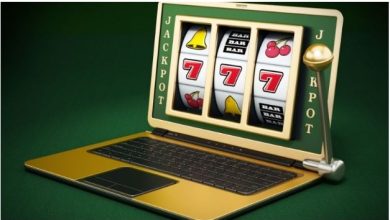Slot Game Myths and Facts: Debunking Common Misconceptions
Slot games are surrounded by a variety of myths and misconceptions that can influence players’ perceptions and strategies. Understanding the facts behind these myths is crucial for making informed decisions and enjoying a more satisfying gaming experience. Here’s a breakdown of some common slot game myths and the corresponding facts:
1. Myth: “Slots Are Rigged to Make You Lose.”
Fact: Slot games are regulated and monitored by gaming authorities to ensure fairness. They use Random Number Generators (RNGs) to determine the outcome of each spin, making the results entirely random and unbiased. The odds of winning are consistent and not manipulated by the casino.
2. Myth: “You Can Predict When a Slot Machine Will Pay Out.”
Fact: Slot machines operate using RNGs, which means each spin is independent of previous or future spins. There is no pattern or way to predict when a machine will pay out. The outcome of each spin is random, and there is no method or strategy that can influence it.
3. Myth: “Slots Have Hot and Cold Machines.”
Fact: The idea of “hot” or “cold” machines is a misconception. Since slots are governed by RNGs, each machine’s outcome is not affected by past results. No machine is more or less likely to pay out based on its recent performance; every spin has the same probability of winning.
4. Myth: “Betting Max Coins Increases Your Chances of Winning.”
Fact: Betting the maximum number of coins does not increase your chances of winning. While some slot machines have special features or jackpots that are only available when betting the maximum, it does not influence the likelihood of a win on a regular spin.
5. Myth: “Casinos Control the Outcome of Slot Machines.”
Fact: Reputable casinos cannot control the outcome of slot machines. The results are determined by RNGs, ensuring that each outcome is random and fair. Casinos have no influence over which symbols appear or when a jackpot is triggered.
6. Myth: “Slots Have a ‘Due’ for a Big Win.”
Fact: Slots do not have a “due” for a big win. The outcome of each spin is random and independent. Past losses or wins do not affect future results. The idea that a machine is “due” for a payout is a misconception.
7. Myth: “Playing Slots During Off-Peak Hours Increases Your Chances of Winning.”
Fact: The time of day has no effect on the outcomes of slot games. Slots operate on RNGs, so the results are not influenced by external factors such as the time of day or how many people are playing.
8. Myth: “You Can ‘Trick’ a Slot Machine.”
Fact: Slot machines are designed with robust security measures to prevent tampering or manipulation. Attempts to use physical or electronic methods to trick a machine are illegal and ineffective. The RNGs ensure that outcomes are fair and random.
9. Myth: “Slots With Higher Denominations Are More Likely to Pay Out.”
Fact: Higher denomination slots often have a higher Return to Player (RTP) percentage, meaning they may offer better odds over the long term. However, this does not guarantee more frequent or larger wins on any given spin. The RTP is an average calculated over millions of spins, not a prediction for individual play sessions.
10. Myth: “Slot Game Developers Use ‘Losses to the Player’ Algorithms.”
Fact: Slot game developers do not use algorithms designed to make players lose. The RTP percentage is calculated based on statistical averages over many spins, and developers are required to adhere to strict regulations and standards to ensure fairness.
11. Myth: “Winning on Slots is Just About Luck.”
Fact: While luck is a significant factor in slot games, understanding the mechanics and features of the game can enhance the playing experience. Familiarizing yourself with the paytable, RTP, and bonus features can help you make more informed decisions and manage your gameplay better.
12. Myth: “Online Slots Are Less Fair Than Land-Based Slots.”
Fact: Online slots are subject to the same regulations and fairness standards as land-based slots. They are tested and audited by independent organizations to ensure that they operate fairly and provide random outcomes.
13. Myth: “A Slot Machine’s Jackpot Will ‘Reset’ After a Big Win.”
Fact: The jackpot on a slot machine, whether progressive or fixed, does not reset in a way that affects the fairness of future spins. Progressive jackpots accumulate from player bets and can be won at any time, regardless of when the last jackpot was hit.
Summary
Understanding the facts behind slot game myths can help players approach the games with a clearer perspective. Slot games are designed to be entertaining and fair, with outcomes determined by RNGs that ensure randomness and impartiality. By debunking these common misconceptions, players can make more informed decisions and enjoy their gaming experience with a better grasp of how slot machines work.


